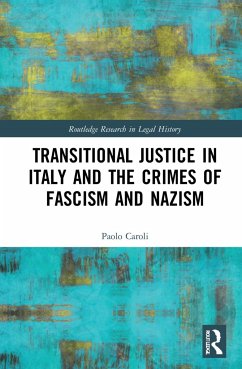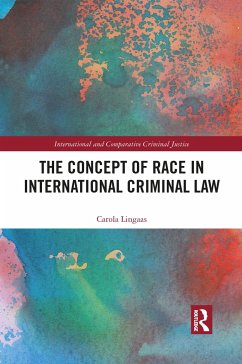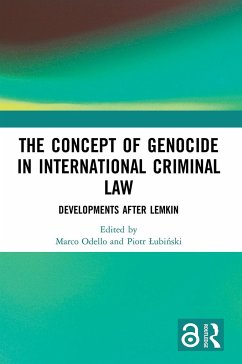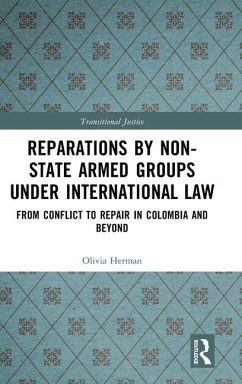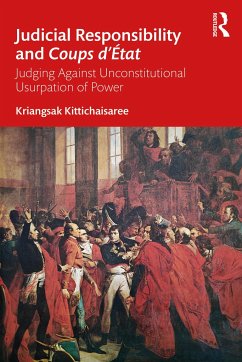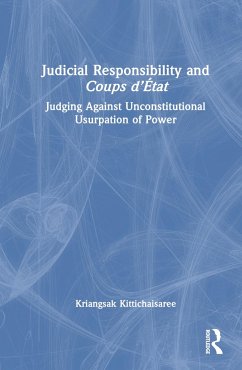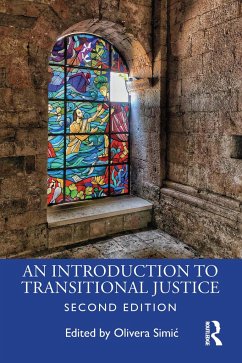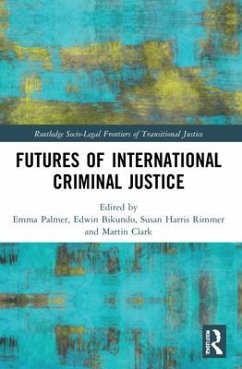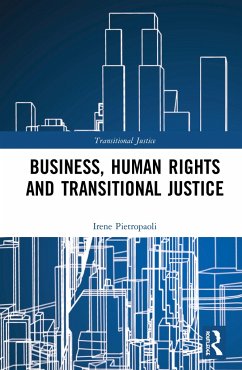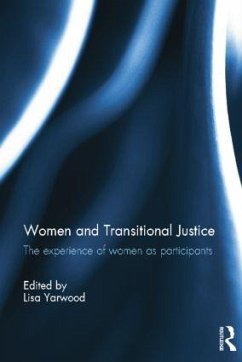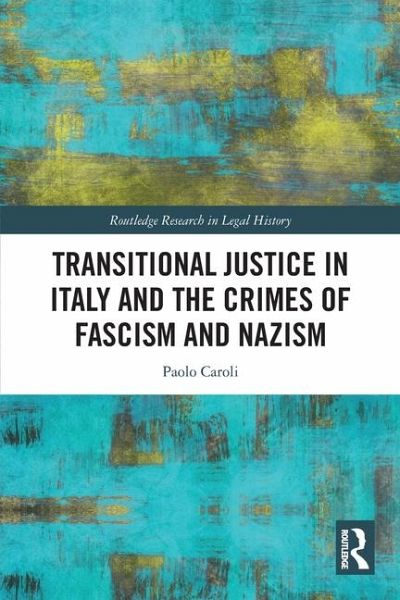
Transitional Justice in Italy and the Crimes of Fascism and Nazism
Versandkostenfrei!
Versandfertig in 6-10 Tagen
47,99 €
inkl. MwSt.
Weitere Ausgaben:

PAYBACK Punkte
24 °P sammeln!
This book presents a comprehensive analysis of the Italian experience of transitional justice examining how the crimes of Fascism and World War II have been dealt with from a comparative perspective.Applying an interdisciplinary and comparative methodology, the book offers a detailed reconstruction of the prosecution of the crimes of Fascism and the Italian Social Republic as well as crimes committed by Nazi soldiers against Italian civilians and those of the Italian army against foreign populations. It also explores the legal qualification and prosecution of the actions of the Resistance. Par...
This book presents a comprehensive analysis of the Italian experience of transitional justice examining how the crimes of Fascism and World War II have been dealt with from a comparative perspective.
Applying an interdisciplinary and comparative methodology, the book offers a detailed reconstruction of the prosecution of the crimes of Fascism and the Italian Social Republic as well as crimes committed by Nazi soldiers against Italian civilians and those of the Italian army against foreign populations. It also explores the legal qualification and prosecution of the actions of the Resistance. Particular focus is given to the Togliatti amnesty, the major turning point, through comparisons to the wider European post-WWII transitional scenario and other relevant transitional amnesties, allowing consideration of the intense debate on the legitimacy of amnesties under international law. The book evaluates the Italian experience and provides an ideal framework to assess the complexity of the interdependencies between time, historical memory and the use of criminal law.
In a historical moment marked by the resurgence of racism, neo-Fascism, falsifications of the past, as well as the desire to amend the faults of the past, the Italian unfinished experience of dealing with the Fascist era can help move the discussion forward. The book will be an essential reading for students, researchers and academics in International Criminal Law, Transitional Justice, History, Memory Studies and Political Science.
Applying an interdisciplinary and comparative methodology, the book offers a detailed reconstruction of the prosecution of the crimes of Fascism and the Italian Social Republic as well as crimes committed by Nazi soldiers against Italian civilians and those of the Italian army against foreign populations. It also explores the legal qualification and prosecution of the actions of the Resistance. Particular focus is given to the Togliatti amnesty, the major turning point, through comparisons to the wider European post-WWII transitional scenario and other relevant transitional amnesties, allowing consideration of the intense debate on the legitimacy of amnesties under international law. The book evaluates the Italian experience and provides an ideal framework to assess the complexity of the interdependencies between time, historical memory and the use of criminal law.
In a historical moment marked by the resurgence of racism, neo-Fascism, falsifications of the past, as well as the desire to amend the faults of the past, the Italian unfinished experience of dealing with the Fascist era can help move the discussion forward. The book will be an essential reading for students, researchers and academics in International Criminal Law, Transitional Justice, History, Memory Studies and Political Science.





